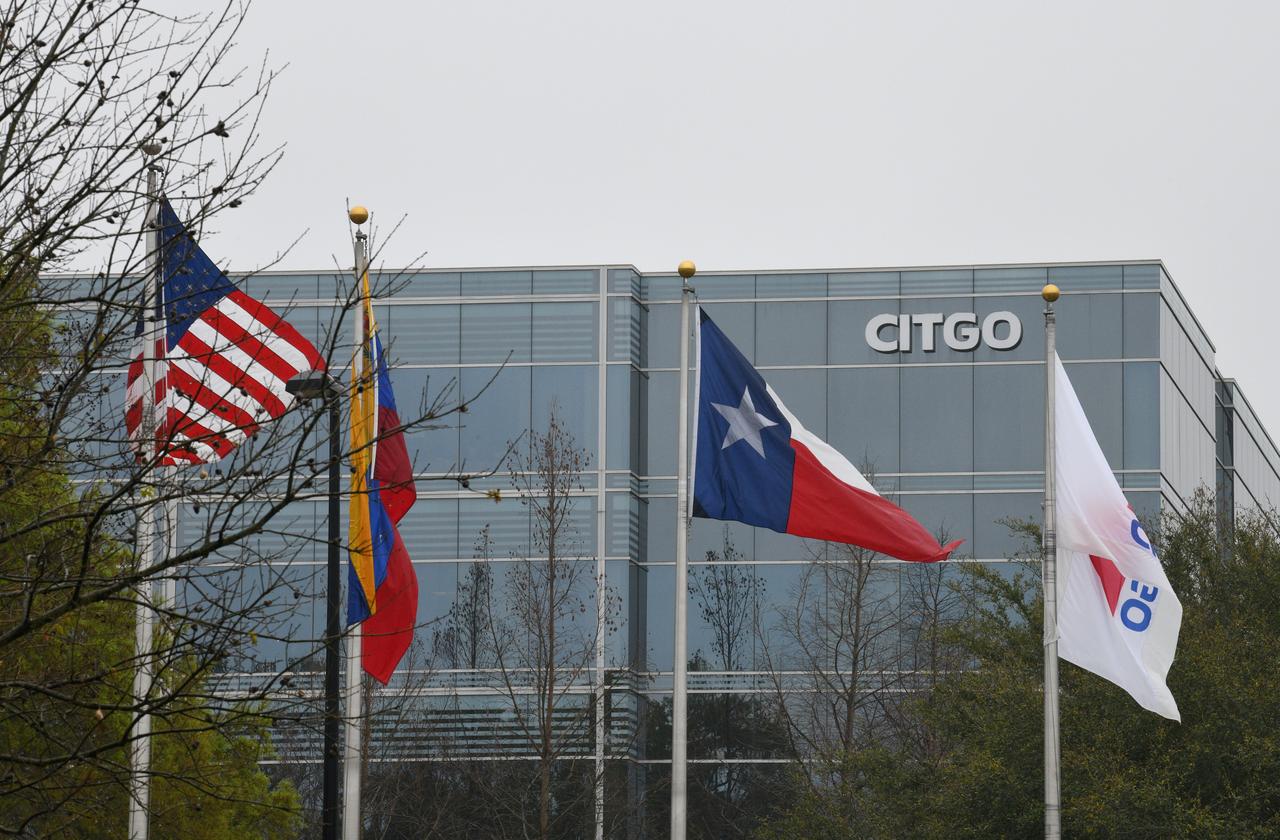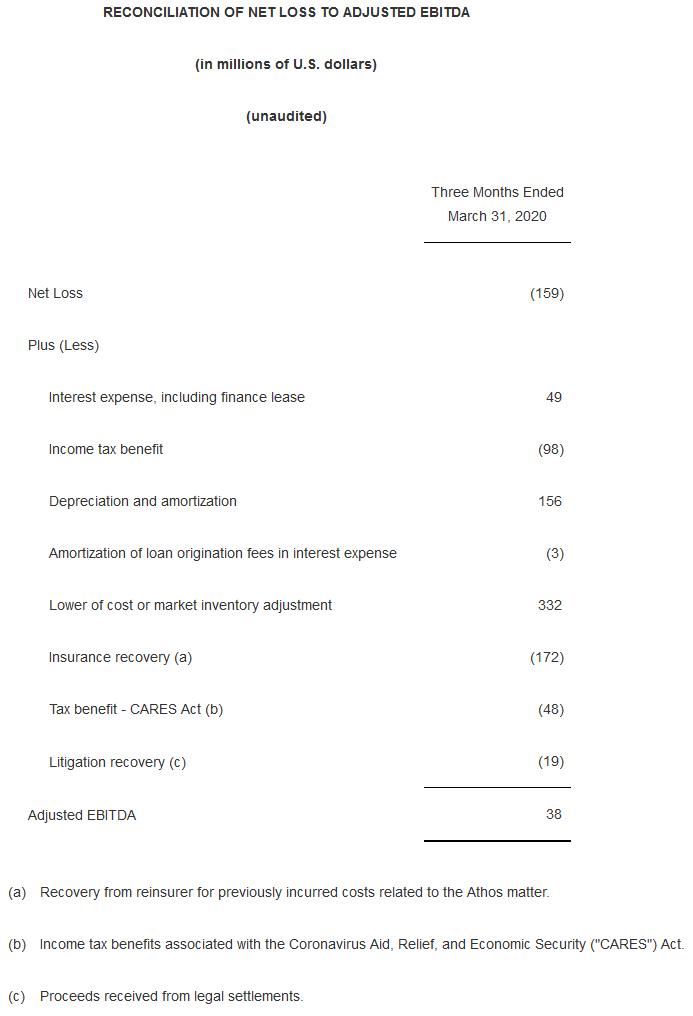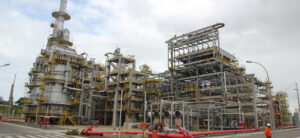
(Citgo, 12.Jun.2020) — Citgo Petroleum Corporation reported its first quarter 2020 performance results, including a net loss of $159 million and an adjusted EBITDA1 of $38 million excluding the effect of special items.
The onset of the Covid-19 pandemic combined with crude oil demand destruction were drivers behind the company’s first quarter results and impacted the industry as a whole. The first quarter net loss was particularly affected by the lower of cost or market (“LCM”) inventory valuation adjustment, a result of rapidly falling crude oil prices affecting refiners across the industry.
“The LCM adjustment resulted in a non-cash loss that had no impact on Citgo’s overall liquidity,” said Citgo President and CEO Carlos Jordá. “Our management team will continue monitoring the economic environment closely, using the flexibility of our refineries and the diversification of the markets where we operate to adjust our product slate and refinery runs while continuing to evaluate additional cost reductions.”
Operational And Performance Highlights
— Turnaround activity – Maintained existing turnaround plans
— Refinery throughput – Total refinery throughput in the first quarter was 764,000 bpd, including 114,000 bpd of intermediate feedstocks, resulting in an overall crude utilization of 91%.
— Exports – First quarter refined products exports averaged 181,000 bpd.
— Operational excellence – Citgo refineries continue to be recognized for outstanding performance. The Lemont refinery recently received the American Fuel and Petrochemical Manufacturers (AFPM) Elite Gold Safety Award in recognition of top industry safety performance and excellence in program innovation and leadership. The Citgo Corpus Christi refinery earned the 2019 Energy Star designation from the U.S. EPA.
— Special items – Several one-time or special items impacted our net loss in the first quarter 2020. The net loss was primarily driven by LCM adjustment of approximately $332 million. This impact was partially offset by an approximately $172 million insurance recovery gain related to the previously incurred costs related to the Athos matter and an approximately $48 million tax benefit as a result of certain Coronavirus Aid, Relief, and Economic Security Act (the “CARES Act”) provisions.
Second Quarter Strategic Update:
Citgo is actively responding to the extremely challenging economic conditions with the following strategic initiatives:
— Refinancing – On June 9, 2020, Citgo successfully refinanced its 2021 Term Loan B with proceeds of a private offering of 7.00% senior secured notes due 2025. The notes offering was oversubscribed, allowing Citgo to upsize the offering to $1.125 billion.
— Continued turnarounds – Citgo continued with its existing turnaround plans at the Lake Charles and Lemont refineries after developing and implementing strict COVID-19 safety protocols, which allows the company to take advantage of the low demand environment.
— Liquidity management – Citgo is targeting a 10% reduction of its 2020 capital expenditures and is taking steps to reduce 2020 planned annual operating expenses by approximately 10%-15%.
Industry Overview
In a May meeting with the Citgo entities’ ultimate shareholder, the PDVSA adhoc board, Citgo Board Chairwoman Luisa Palacios detailed the broader economic and market forces driving the first quarter environment. Covid-19 and its development into a pandemic in March 2020 resulted in significant economic disruption, as the U.S. economy contracted nearly 5%, U.S. equity markets fell sharply, crude oil prices fell by 65% from the middle of March to end of May, and significant restrictions on travel and work severely impacted demand for gasoline, diesel and jet fuel. April marked the month with the largest refined products demand destruction of 38.5% in comparison to the same month in the previous year.
The economic disruption led to a collapse of margins for petroleum products with the gasoline crack turning negative, a development not seen since the 2008 credit crisis.
This led to a significant cut in refining capacity utilization globally and in the United States since March. U.S. refinery utilization fell to a low of 68% and since has recovered to 72%. With demand disappearing, inventories for refined products and crude have risen dramatically, and while the industry has avoided reaching tank tops, inventories are now at historically high levels and will need to work themselves through in order for a healthy margin environment to return.
Analysts expect the refining sector will see the worst of the crisis in the second quarter of 2020. However, as all states have recently lifted stay-at-home orders, analysts expect a gradual recovery in demand in the second half of 2020. In such an environment, gasoline demand is expected to lead the recovery, while the health of distillate demand will be connected to the recovery of GDP growth, and jet demand is expected to lag.
Current positive expectations about the second half of 2020 rest on assumptions that a demand recovery will lift refinery runs and refinery margins. However, these expectations depend on continued avoidance of a significant resurgence of Covid-19 as social distancing requirements ease.
Palacios pointed to the concrete, proactive steps taken by Citgo to ensure the company is well-positioned to weather current economic conditions and seize the initiative when markets improve. “We believe Citgo has proactively prepared itself for a stress scenario by reducing operating and capital costs, tapping the markets to obtain additional liquidity, and proceeding with planned maintenance activities in the second quarter while the opportunity cost and demand levels are low,” said Palacios.
1 Adjusted EBITDA is a Non-GAAP financial measure. Please see the reconciliation table below.

__________

